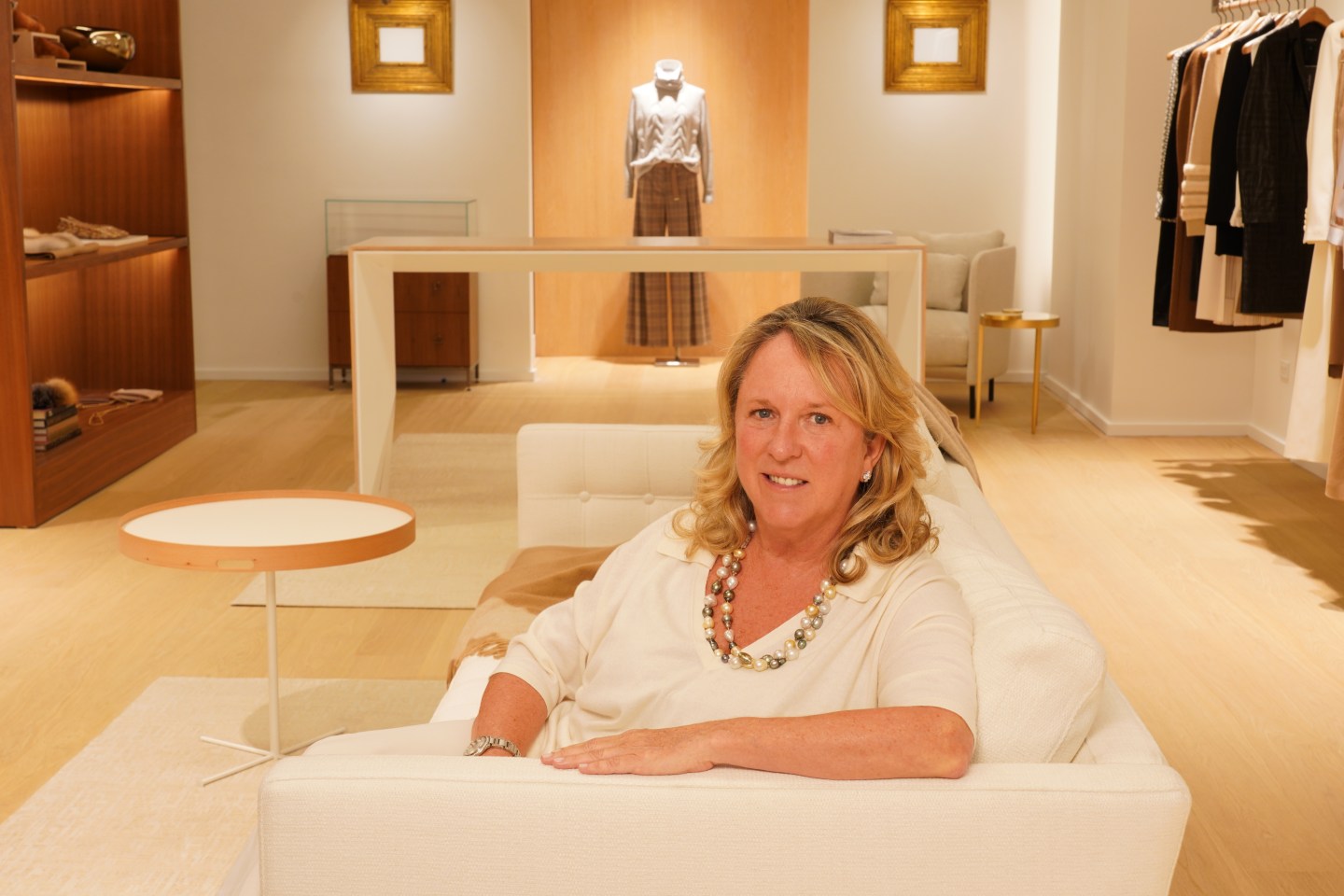Good morning! Diddy’s sex-trafficking trial has begun, White House Chief of Staff Susie Wiles faces conflict of interest concerns, and tariffs continue to roil the fashion world.
– Style at risk. The clothing brand Lafayette 148 is 29 years old, worn by Melania Trump, and makes 95% of its inventory at a compound it built in China. Cofounder and CEO Deirdre Quinn says U.S. tariffs on China are costing her $600,000 a week and she “won’t make it ’til Christmas” if President Donald Trump’s China trade war continues.
Quinn is one of several small business owners sounding the alarm about the impact of tariffs on their companies. (Even as fashion marches on—as seen at last night’s Met Gala.) A group of female founders convened by the cofounders of the wine brand Juliet sent a letter to the Trump administration last month calling for support for small-business owners to transition to domestic supply chains; one of the group’s examples was Juliet itself, which is mostly made in the U.S. with one packaging component that comes from China—and has no viable domestic alternative.
For Lafayette 148, that transition would be even more complicated. About 15 years ago, the label invested in a 240,000 square-foot compound in Shantou, China, that can manufacture leather goods, knitwear, blouses, and more. Quinn says the factory allowed her to keep working after she almost quit out of exhaustion criss-crossing the globe looking for separate factories for each of her products. Becoming a vertically-integrated business was an advantage—until it wasn’t.
Her brand, whose new arrivals range from a $148 t-shirt to a $2,798 midi skirt, is now at risk of folding due to 145% tariffs on China. (First Lady Melania Trump has worn a navy dress from the brand, while former First Lady Jill Biden chose a yellow dress-and-jacket combo for a visit to France.) Lafayette 148 typically imports 10,000 garments a week; now, Quinn says she can only afford to import what she has already sold, so far 1,000 to 2,000 garments weekly. Her 11 U.S. stores are lacking inventory as a result. “The tariffs are bigger than half my company’s entire overhead,” she says.
My colleague Lila MacLellan, meanwhile, spoke with Pauline Lock, who manages the New York-based manufacturer InStyle USA. Lock says that the domestic factory she runs is not seeing more business because of tariffs—quite the opposite. The general uncertainty is leading retailers to cancel orders amid low consumer confidence and designers to pause plans for future projects, concerned about what costs will be. Lock has had to cut her staff in half. “We have to make sure that we have a solid foundation before we cut off the rest of the world,” she told Lila.
Emma Hinchliffe
emma.hinchliffe@fortune.com
The Most Powerful Women Daily newsletter is Fortune’s daily briefing for and about the women leading the business world. Today’s edition was curated by Nina Ajemian. Subscribe here.
ALSO IN THE HEADLINES
- On trial. Sean “Diddy” Combs’ sex-trafficking trial began yesterday with jury selection. The trial is expected to last for at least eight weeks, and if Combs is convicted on any of the five counts he faces, he could be imprisoned for life. Combs has denied the allegations against him. Variety
- Client conflict. A consumer advocacy group is worried that White House Chief of Staff Susie Wiles’ meetings with her former lobbying clients could pose a conflict of interest. The White House has denied Wiles’ involvement in all decisions with former clients, except for one call with General Motors. Washington Post
- Up to bat. The Women’s Pro Baseball League is partnering with production company Fremantle. With the new media deal, “We’re documenting the rebirth of a sport, and the pioneers who are making it happen,” said newly appointed league chair and sports investor Assia Grazioli-Venier. The Athletic
- Out of work. The unemployment rate for Black women 20 and older has continued to increase since last February when it was at 4.4%—now it’s up to 6.1%. While the reasons behind this rise are still unclear, the percentage of employed Black women has dropped the past two months, as has workforce participation. Bloomberg
MOVERS AND SHAKERS
Nike’s longtime president of consumer, product, and brand Heidi O’Neill is out at the sportswear maker. Her role will be split up into three jobs; VP and GM of global women’s Amy Montagne will become president of Nike brand and Nicole Graham will lead marketing.
Mastercard appointed Kelly Devine as regional president, Europe. Most recently, she was customer director at Dunelm. She previously served as president of Mastercard’s U.K. and Ireland business.
Nasdaq Private Market appointed Samantha Tortora as chief growth and chief marketing officer, Amanda Gold as chief of staff and chief people officer, and Parul Dubey as head of SecondMarket. Previously, Tortora was global head of Aladdin Sustainability, managing director at BlackRock; Gold was Nasdaq Private Market’s CMO; and Dubey was managing director, head of private client group at Nasdaq Private Market.
AffiniPay, which develops practice management software, named Leslie Witt chief product officer. Witt was previously chief product and design officer and consumer channel leader at Headspace.
Cybersecurity AI company Darktrace appointed Amanda Phillips as SVP of customer success. Most recently, she was senior director of the Americas customer success team at CyberArk.
WellTheory, an autoimmune care provider, named Dr. Erin Hammett medical director. She previously practiced at Sutter Health.
ON MY RADAR
What the ‘2% of VC funding’ stat gets wrong about women entrepreneurs Fast Company
How should a woman sound? New York Times
What if menopause were optional? Vox
PARTING WORDS
“Your spirit may be heard around the world tonight. Two and a half million people.”
—Lady Gaga on her free concert on Copacabana Beach in Brazil, which broke the record for the highest-attended concert by a female artist













